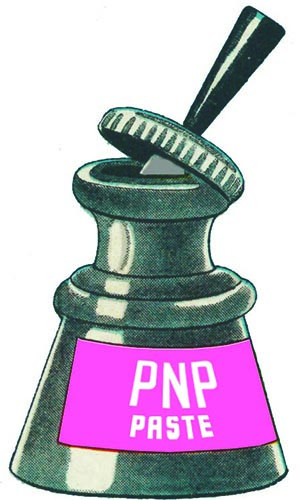We have fallen upon evil times; the world has waxed old and wicked. Politics are very corrupt. Children are no longer respectful to their elders. Each man wants to make himself conspicuous and write a book.
King Naram Sin of Chaldea probably did not have this quote impressed into clay tablets around 5,800 years ago, as is often claimed, but I’m sure he would have wanted to. Maybe he was too busy organizing the Assyrian version of ICAC to put pen to clay.
We’ll ignore any interpretation that writing an article for CRANK is akin to writing a book and concentrate on the ‘respect’ aspect of the quote. I find that, more and more, I am surrounded by disrespect and attention-seeking behaviour: “listen to me” “I’m not doing that” “don’t forget me” “Me! Me! Me! Me! Me!” And so on, all day long.
The washing machine was the original prima donna. A continuous trilling echoes through the house near the end of the rinse cycle if it deems its precious cargo is ‘out of balance’. If it’s so smart, why doesn’t the damn-fool thing add some more water, swirl the clothes around a bit, and try again?
The fridge developed a much more subtle approach to attention-seeking. No amount of levelling would convince the door to shut by itself, let alone with a gentle push. A master of deception, its door looks shut and then…beep, beep, beep, on and on until you come and shut it up (pun intended).
But it was the inductive cooktop that was the final straw. Put something on it, like the shopping, and likely as not a beep will be emitted every so often until you take it off. Trill, trill—sorry that’s the washer needing its load redistributed. Where was I? Oh yes, the cooktop. Perversely, if you’re frying, and you take the pan off, it beeps. Beep, beep—sorry that’s the fridge this time, somebody didn’t shut its door properly. Trill, trill—[sigh]—the washer wasn’t satisfied with the redistribution. How can you get anything done, when even your interruptions are interrupted? Pure chaos! Taking a deep breath now… ahhhh… as for touching the marked spots on the cooktop that purportedly control power and temperature, well! Maybe it’ll condescend to turn on or off or do whatever you’d hoped would happen, but more likely is complete disdain.
The kindest way to describe the cooktop’s timer is ‘perverse’. Unlike the oven’s, which can easily be heard in the next room while watching TV, the cooktop’s timer is annoyingly insistent yet quiet enough to ensure you must be close by. But there’s worse: when you use the timer to remind you to gauge activity on hot plate 1, it assumes you want to turn off hot plate 1 at the same time! In fact, some seconds before the timer actually sounds! No doubt this is a feature of which the designers were mightily proud, and maybe something I could rectify if I could (be bothered to) read the microscopic print of the instruction manual. But as the default action? I ask you. And even more remarkable, the ultimate in intelligent design must surely be this: if you turn off hot plate 1, the timer turns off too!
And speaking of arrogance and timers, the new microwave doesn’t appear to be able to be used just as a timer—too demeaning a chore for such a self-opinionated high-tech device, I suspect.
Well, that’s a run down of the attention-seekers of the title. Now, let’s tackle those that have perfected disobedience: the TV and the computer. On second thoughts, maybe not. I’m exhausted just thinking about it. I’ll get back to you after a cup of tea, a Bex and a good… beep, beep, beep, beep…. [slams fridge door]… lie down.
SERENDIPITY, WARRNAMBOOL
Thinking to save time and effort the Inuit people trained polar bears to respond to ice-box alarms, though not always with the desired results. Fortunately polar bears did not care much for fizzy pop and preserved fruits. [Showroom windows at the Metropolitan Gas Co., 196 Flinders Street, Melbourne]. Commercial Photographic Co., ca. 1930 - ca. 1939, State Library of Victoria, H2011.52/171.



